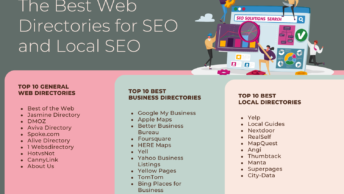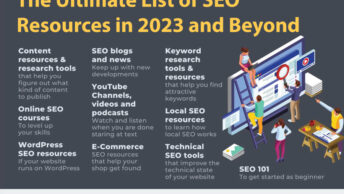These days it seems like everyone and their mom thinks they’re a professional SEOer. So what do they do? They find relevant keywords and then they pack them in their content like sardines in a can. The result is completely unreadable copy. And unreadable copy is copy that does not convert. So what’s the point of boosting your rank if you can’t turn readers into buyers?
Besides, at this point, keyword stuffing is pretty much useless. The reality is, you should only lightly sprinkle your keywords in your content. Think of it like salt. A little is good but too much kills the flavor. So if you aren’t cramming your content with keywords, where are you putting them? Here are five other places you can place them.
1. Image alt tags—One of the newest advances in the SEO world, optimizing your images is a good idea. Not only will it help your page rank, but it also allows your images to pop up in image searches. So when someone clicks your image, they go to your site. Make sure you make your image alt tags as specific as possible.
2. Meta description tag—This is basically the short summary of your page that appears on the search results page. This description should be carefully written as it’s not only a place to put your keyword, but it’s also an important piece of copy. It must convince whoever is performing the search to click on it. So be careful that you don’t force your keyword here and make it read awkwardly.
3. Heading and subheadings— Headings and subheadings are basically mini-titles. So it only makes sense that you should include your keywords here. Does it actually improve your rankings? No one seems to know for sure. But it can’t hurt as long as you don’t overdo it. And it definitely helps with readability.
4. Title tags—The title tag holds the exact title that will show up in search results. This is what searchers will actually click on. That said, this is one of the most important places to put your keyword. Make sure you make the title tag for each page specific. Meaning use a relevant keyword. Not the same one over and over.
5. URL— This one seems like a no-brainer, yet you still see people using the most nonsensical URLs. It’s only logical that you should place your keywords in the matching URLs. Not only does it help you boost your rank, but it helps categorize your site as well.
Where else do you think you should put your keywords?







wasn’t there something about using URL keywords that Google’s new algorithm did not like?
If the keywords are in the domain name Google gives great importance to it, though adding keywords in the URL is also important. If you search for any term say ‘virtual assistant’, most of the sites that appear on the top have this term completely or partially in their domain.
Nice onsite SEO 101 here
When you put keywords in Titles/Subtitles isn’t it equivalent to putting your keywords in contents? Regarding keywords in URL, it really work but any idea about length of the URL including domain name? What’s standard length of URL?